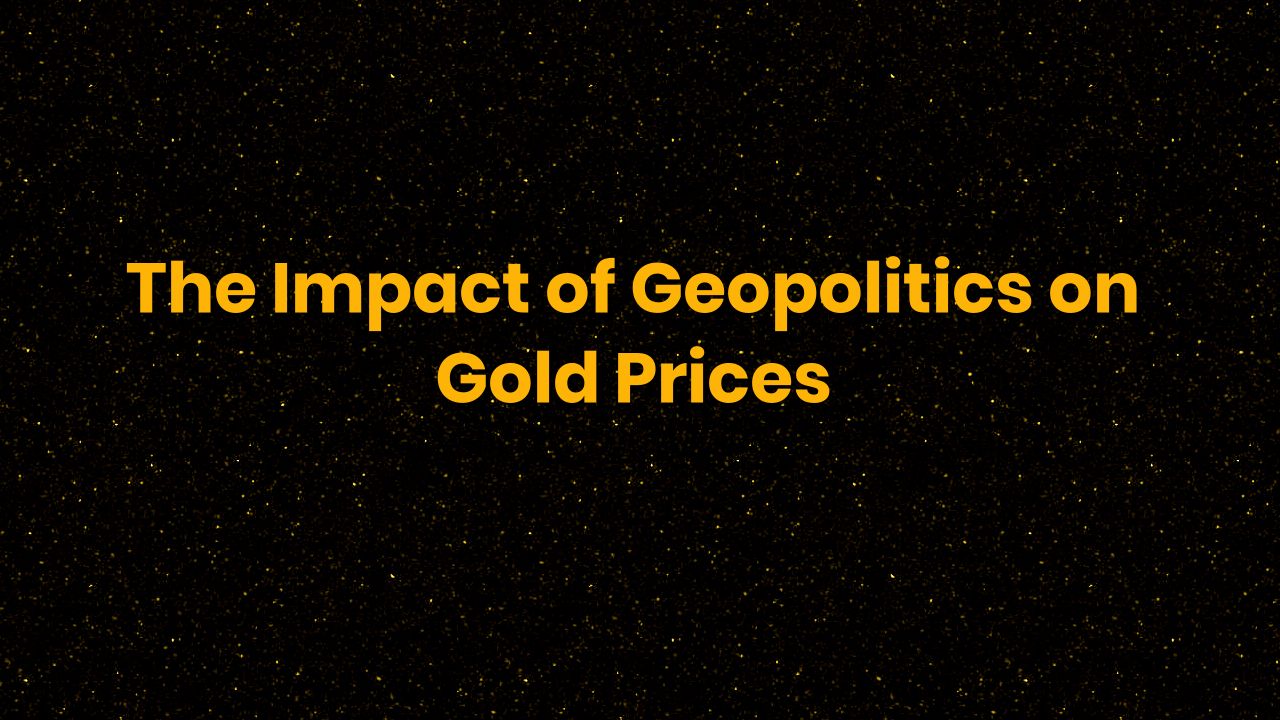
Table of Contents
Introduction
Gold is considered to be a safeguard for investors who are looking for a reliable investment in times of economic and political upheaval. One of the key drivers of gold prices is geopolitics. The historical connection between geopolitics and gold prices can be traced back to centuries, with global geopolitical events often impacting the economics and shaping the demand for gold. In this blog, we will explore the impact of geopolitics on gold prices, providing insights into the historical connection, recent examples of geopolitical events that impacted gold prices, and the role of the US dollar in shaping this connection. We will also identify key factors to monitor when investing in gold in the current geopolitical landscape.
Definition of Geopolitics
Geopolitics is the study of the impact of geography on politics, economics, and international relations. It takes into account how nations and regions interact with each other based on their location, resources, and other factors that influence their political and economic positions. Geopolitical events such as wars, trade disputes, sanctions, and changes in government policies can have a significant impact on the global economy and financial markets, including the price of commodities such as gold.
Historical Overview of the Connection between Geopolitics and Gold Prices
The historical connection between geopolitics and gold prices can be traced back to ancient times, with gold often being used as a form of currency and a store of value. Throughout history, major geopolitical events such as wars, political turmoil, inflation, and currency devaluations have often resulted in a surge in demand for gold as a safe haven asset. For instance, during the World War II, many government around the world bought gold as a means of financing their war efforts.
Examples of Geopolitical Events that Affected Gold Prices
In recent times, there have been several geopolitical events that have had a significant impact on gold prices. For instance, the Russian annexation of Crimea in 2014 led to a sharp increase in gold prices. Similarly, when the United States imposed sanctions on Iran in 2018, gold prices climbed to their highest levels in six years as investors perceived the move to be a threat to global economic growth. The trade war between the US and China, and the COVID-19 pandemic have also impacted gold prices.
The Role of the US Dollar in Geopolitics and its Effect on Gold Prices
The US dollar is a key factor in the connection between geopolitics and gold prices. The value of gold often moves inversely to that of the US dollar. This is because most of the gold is bought and sold in US dollars. As a result, any fluctuations in the value of the US dollar impact the price of gold. Furthermore, the US dollar is often regarded as a safe haven asset. If there is a crisis or uncertainty surrounding a particular country or region, investors tend to move their money into the US dollar or gold. Thus, any geopolitical event that affects the US economy or the value of its currency can impact gold prices.
Geopolitical Factors to Monitor for Investing in Gold
To make informed decisions when investing in gold based on geopolitical events, it is crucial to monitor several factors such as trade tensions, sanctions, political events, and economic indicators. The level of global uncertainty and risk aversion tend to influence the price of gold. Therefore, keeping an eye on global events that could trigger uncertainty and increase risk aversion can be helpful.
Summary and Conclusion
In summary, the connection between geopolitics and gold prices has been well-established throughout history. Gold is considered a safe haven asset, and geopolitical events often trigger market uncertainty and increase demand for gold. The value of the US dollar is also an important factor in the connection between geopolitics and gold prices. When investing in gold based on geopolitical events, monitoring key factors such as trade tensions, sanctions, political events, and economic indicators can play a significant role in making informed investment decisions.





